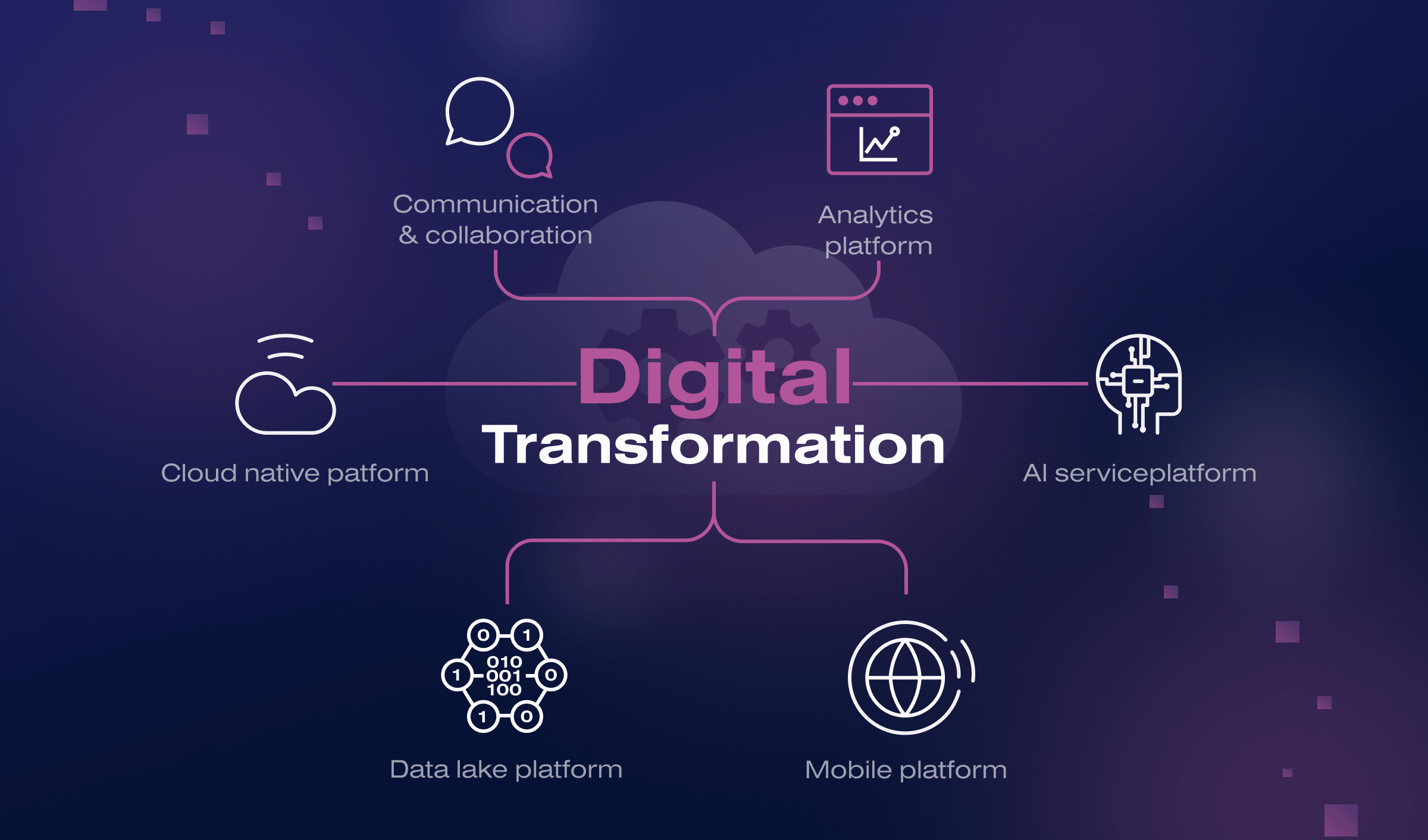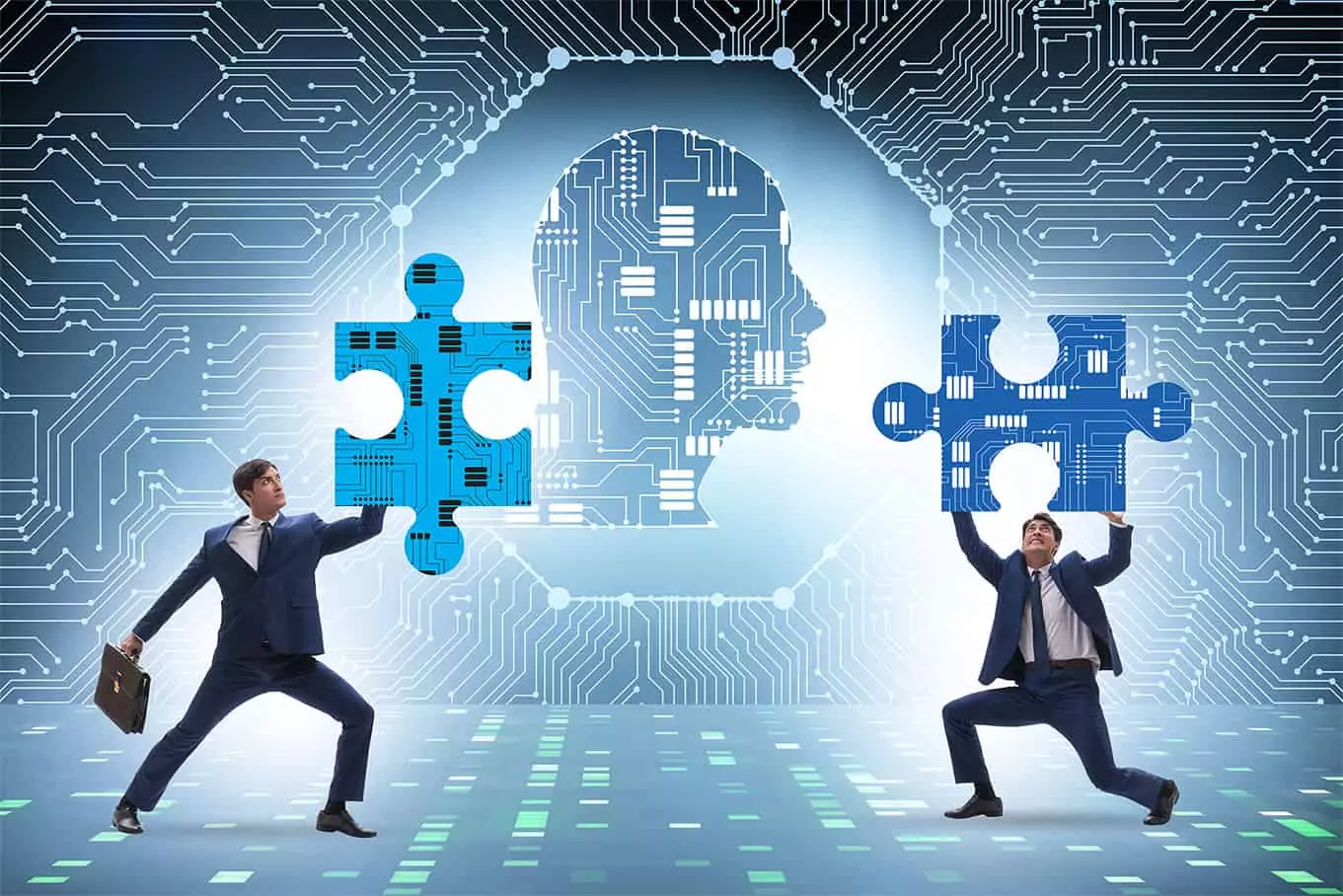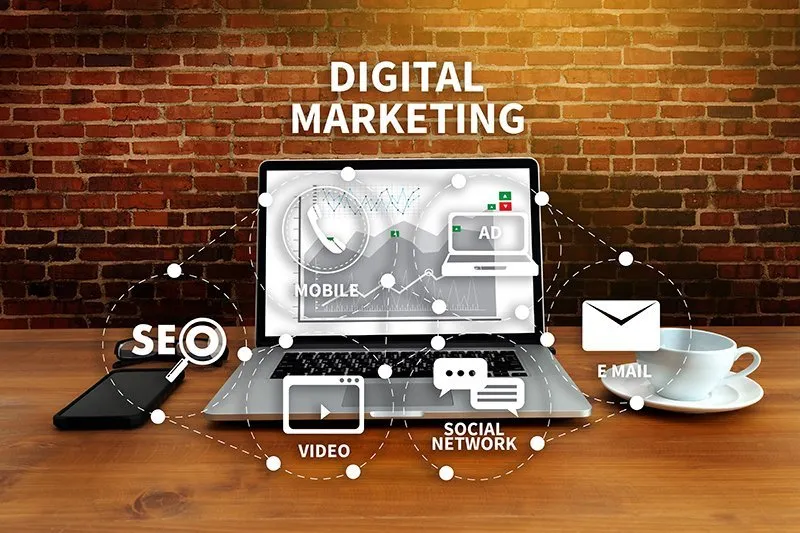Digital Transformation in Traditional Industries
Embracing technological innovation to revitalize established sectors and create sustainable competitive advantage
Understanding Digital Transformation
Digital transformation represents the integration of digital technology into all areas of business, fundamentally changing how organizations operate and deliver value to customers. For traditional industries—such as manufacturing, agriculture, construction, and mining—this transformation is not just advantageous but increasingly essential for survival in today's competitive landscape.
At Al Mithaq Institute, we recognize that digital transformation is more than simply implementing new technologies; it involves a complete rethinking of business models, processes, and organizational culture. Our Business Administration and Management programs, including Change Management and Development, Data Analysis and Smart Decision Making, and Project Management, are designed to equip professionals with the skills needed to navigate this complex transition.
Key Drivers of Digital Transformation
- ✓ Customer Expectations: Modern consumers demand seamless, digital experiences across all industries
- ✓ Competitive Pressure: Disruptive startups and digitally-savvy competitors are challenging traditional business models
- ✓ Operational Efficiency: Digital tools enable significant cost reduction and process optimization
- ✓ Data-Driven Insights: Analytics capabilities allow for more informed decision-making
- ✓ Sustainability Demands: Digital technologies facilitate more environmentally conscious operations
Digital Transformation Across Traditional Sectors
Manufacturing: Industry 4.0
The manufacturing sector is experiencing perhaps the most visible digital revolution through the concept of Industry 4.0. This refers to the integration of smart technology, Internet of Things (IoT) devices, and data analytics throughout the production process.
Smart Factories
Automated production lines with interconnected machinery that communicates in real-time, optimizing production flow and reducing downtime.
Predictive Maintenance
Sensors and machine learning algorithms predict equipment failures before they occur, reducing maintenance costs and preventing production interruptions.
Digital Twins
Virtual replicas of physical assets enable simulation, testing, and optimization without disrupting actual production.
Supply Chain Visibility
End-to-end digitization of supply chains provides real-time tracking, improved inventory management, and enhanced responsiveness.
Agriculture: Precision Farming
Agriculture, one of humanity's oldest industries, is being revolutionized through digital technologies that enable more precise, efficient, and sustainable farming practices.
Precision agriculture uses IoT sensors, drones, satellite imagery, and sophisticated software to monitor crop health, soil conditions, and weather patterns. These technologies allow farmers to apply water, fertilizers, and pesticides with unprecedented precision, reducing waste and environmental impact while improving yields.
At Al Mithaq Institute, our programs in Sustainability and Renewable Energy help professionals understand how digital transformation can contribute to more sustainable agricultural practices.
"Digital transformation is not about technology—it's about reimagining how we create and deliver value in a digital world. Traditional industries that embrace this mindset will not just survive but thrive in the future economy."
Construction: Building Information Modeling
The construction industry is leveraging digital technologies to improve project planning, execution, and management. Building Information Modeling (BIM) creates detailed 3D models that incorporate all aspects of construction projects, from structural elements to electrical and plumbing systems.
These digital models facilitate better collaboration among architects, engineers, and contractors, reduce errors, minimize rework, and improve project timelines. Additionally, technologies like drones for site surveys, wearables for worker safety, and prefabrication supported by digital design are transforming how construction projects are executed.
Al Mithaq Institute's programs in Civil Engineering Skills and Project Management provide professionals with the knowledge needed to implement these digital solutions effectively.
Healthcare: Digital Medicine
Traditional healthcare delivery is being reimagined through digital technologies that enhance patient care, improve operational efficiency, and enable more personalized treatment approaches.
Electronic health records have digitized patient information, making it more accessible to healthcare providers and facilitating better coordination of care. Telemedicine has expanded access to healthcare services, particularly in remote areas, while wearable devices and remote monitoring tools allow for continuous patient monitoring outside of clinical settings.
For healthcare professionals looking to navigate this digital transformation, Al Mithaq Institute offers programs in Healthcare Administration and Hospital Administration.
Challenges in Digital Transformation
Common Barriers to Digital Adoption
Legacy Systems and Technical Debt
Many traditional industries operate with outdated technology infrastructures that are difficult and costly to replace or integrate with new digital solutions.
Workforce Skills Gap
Existing employees may lack the digital skills needed to implement and work with new technologies, requiring significant investment in training and education.
Organizational Culture
Resistance to change and risk-averse corporate cultures can significantly impede digital transformation initiatives.
Data Security and Privacy Concerns
Increased digitization brings heightened cybersecurity risks and data privacy challenges that must be addressed.
Investment Requirements
Digital transformation often requires significant upfront capital investment, which can be challenging for industries with thin profit margins.
Strategies for Successful Digital Transformation
At Al Mithaq Institute, we advise organizations in traditional industries to adopt a structured approach to digital transformation:
-
Start with a Clear Vision and Strategy
Define what digital transformation means for your specific industry and organization. Establish concrete objectives and key performance indicators to measure success.
-
Focus on Customer Value
Center transformation efforts around enhancing customer experience and delivering new forms of value, rather than implementing technology for its own sake.
-
Build Digital Capabilities
Invest in developing both the technological infrastructure and the human skills needed to support digital initiatives. This may involve partnering with technology providers and implementing comprehensive training programs.
-
Adopt Agile Approaches
Implement digital transformation in manageable phases, allowing for testing, learning, and adaptation. This reduces risk and allows organizations to demonstrate value quickly.
-
Foster a Digital Culture
Promote a mindset of innovation, experimentation, and continuous learning throughout the organization. Leadership must visibly champion the digital agenda.
Al Mithaq Institute: Supporting Digital Transformation
Our institution offers specialized training programs that equip professionals with the knowledge and skills needed to lead digital transformation initiatives:
- • Data Analysis and Smart Decision Making
- • Project Management
- • Change Management and Development
- • Cybersecurity
- • Information Technology
- • Artificial Intelligence
The Future of Digital Transformation
As digital technologies continue to evolve, we can expect even more profound transformations in traditional industries. Emerging technologies like artificial intelligence, blockchain, advanced robotics, and quantum computing will create new opportunities for innovation and efficiency.
The most successful organizations will be those that view digital transformation not as a one-time project but as an ongoing journey of continuous adaptation and improvement. By fostering a culture of digital innovation and investing in the right capabilities, traditional industries can not only survive but thrive in the digital age.
Frequently Asked Questions
How can small businesses in traditional industries afford digital transformation?
Small businesses can approach digital transformation incrementally, focusing first on high-impact, low-cost solutions. Cloud-based services often provide affordable access to sophisticated digital capabilities without large upfront investments. Additionally, many governments offer grants and incentives to support digital adoption by small businesses.
What skills are most important for leading digital transformation initiatives?
Successful digital transformation leaders combine technical understanding with strong change management capabilities. They need strategic vision, data literacy, agile project management skills, and the ability to communicate effectively across different parts of the organization. Al Mithaq Institute's programs in Business Administration and Change Management develop these critical leadership competencies.
How can companies measure the ROI of digital transformation?
ROI can be measured through both operational and strategic metrics. Operational metrics include cost savings, productivity improvements, and error reduction. Strategic metrics might include market share gains, customer satisfaction scores, innovation rates, and new revenue streams. It's important to establish baseline measurements before beginning transformation initiatives.
How does digital transformation impact sustainability efforts?
Digital technologies can significantly enhance sustainability by optimizing resource usage, reducing waste, and enabling more precise control of industrial processes. For example, smart building systems reduce energy consumption, while precision agriculture minimizes water and fertilizer use. Our Sustainability and Renewable Energy program explores these connections in depth.
By embracing digital transformation, traditional industries can reinvent themselves for the digital age, improving efficiency, creating new value propositions, and securing their place in the future economy. Al Mithaq Institute is committed to supporting professionals and organizations on this transformative journey through our comprehensive educational programs and expert guidance.







